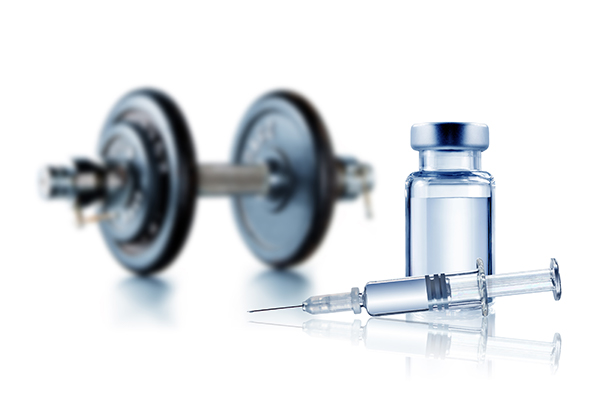I am not going to get into the ethical, legal, and moral issues of buy growth hormone. I’m writing this to open your eyes to a New and Powerful Outlook, a bodybuilding epiphany, that will enable you to gain weight and muscle safely.
I’m going to be using a “tree” analogy in a moment, but first understand some bad news. It’s a scientific fact, that genetics play a large role in our eventual physical development. Of course environment is also important, and while genetics vs. environment is debatable in mental development, physical potential is largely genetic. Depending on your parents, there is a limit as to how strong you are going to be.
Take Arnold Schwarzenegger for example. Arnold at 19 was already big as a house. Arnold’s father was a tall man with a barrel chest, and Arnold’s sister was big for a woman. They all had in common thick bones, and unusual height. This obviously gave Arnold a genetic advantage over a skinny guy, because he was already twice as big, without having trained that much!
Everybody has a different genetic upper limit. Many scientists believe the average person has the potential to triple their starting strength. If I am a skinny guy at age 16, who can do a max bench press of 140 lbs., I can expect to eventually top out at 420 lbs, if I train hard for many years. Likewise if I am Arnold, and can bench 225 lbs. at 16, I might someday bench 675.
Of course we’re talking here about the absolute limit, with everything working out right. Few will obtain their maximum genetic potential, because of injury, improper training, poor eating habits, or just lack of desire, to pursue such a goal.
So what does all of this have to do with how to gain weight and muscle? Let’s imagine that your body is a tree. The steroids will make you big and strong, but the tree will only grow so high. No matter how many steroids you put in, the tree has reached it’s upper genetic potential. Some climb faster, depending on the type and quantity of the steroid, but never higher.
Once you reach the upper limits of that tree, no matter how powerful the anabolic steroids, if you’re starting off super skinny, you’re not going to be Arnold Schwarzenegger. Any more than Miss Piggy, sashaying in heels, will look like Raquel Welch. Your body has upper limits, just like the tree.
I’m just being honest here. For you young guys, especially, just starting out in bodybuilding, don’t be tempted to start steroids as a solution to how to gain muscle and weight. Be aware of the role genetics play in your prospects.
Very few people possess the requisite traits needed to become a champion bodybuilder. You have to be born with the right bodily proportions to give you superior leverage, special muscle fibers, correct muscle length, etc. Training cannot change this.
Not to beat a dead horse, but my point is, don’t jeopardize your health, if you have always been the proverbial 90 lb. weakling. Of course you can triple your strength with proper training, and be far above average. Maybe win some local bodybuilding contests. But you’re not going to be able to overcome genetics. As Clint Eastwood would say: “A man’s got to know his limitations”.
For those of you that could bench press 300 lbs. in high school, with no problem, and seem to have the right genetics, I would still dissuade you, from risking the deleterious effects, of anabolic steroids. While it is true that most bodybuilders seem to recover from the bad side effects once the steroids are discontinued, there hasn’t been that much research on long term effects. If you had some kind of disease that the steroids might ameliorate, I would say go for it. But don’t treat yourself like a lab monkey, just to accomplish something you can do with natural training.
You can always try different steroids, but no matter how fast you climb, you always eventually top out. Now let me digress a little and go into the scientifics of steroids. I realize this may be a little dry, but I want to give the reader a good general idea of how steroids work. So now that the perfunctorys are over, let’s start at the beginning.

